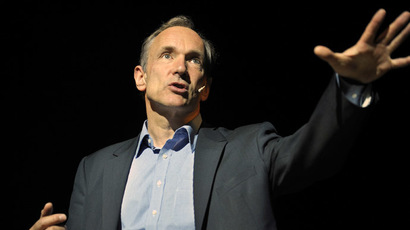UK broadband users overwhelmingly reject porn filters

British internet users are rejecting “pornography filters” spearheaded by Prime Minister David Cameron last year.
The industry watchdog Ofcom found that fewer than one in seven households use the filters, which come automatically when a person registers with BT, Sky, Talk Talk, or Virgin Media.
According to Ofcom, most of the providers were unable to convince their customers to adopt the filters, with Virgin only able to convince four per cent of its customers to keep the protection in place.
A spokesperson for Ofcom told BBC News that the low figures represent a “failure in process,” and reassured the public that the watchdog would take steps to improve online security.
“We take our responsibility to help families stay safe online very seriously and have taken immediate action to improve how we meet our commitments to government" Ofcom said.
Talktalk was able to convince 36 percent of its customers to use the filters, which it designed soon after the policy was implemented.
In contrast, BT and Sky only launched their filters at the end of 2013.
The filters, which were proposed by Cameron in order to curb access explicit websites, were part of a government-sponsored scheme to protect children using the internet.
New users are offered the filters when they sign up, and can only opt out if they inform their service provider they wish to do so.
However, the filters caused controversy among the web community, many of whom felt they would restrict civil liberties online and invade personal privacy.
As a result, the Open Rights Group (ORG) launched a campaign to challenge internet filters, called the ‘Department of Dirty.' Mocking a government department, the campaign aims to show how web filters are counter-productive when browsing online.














